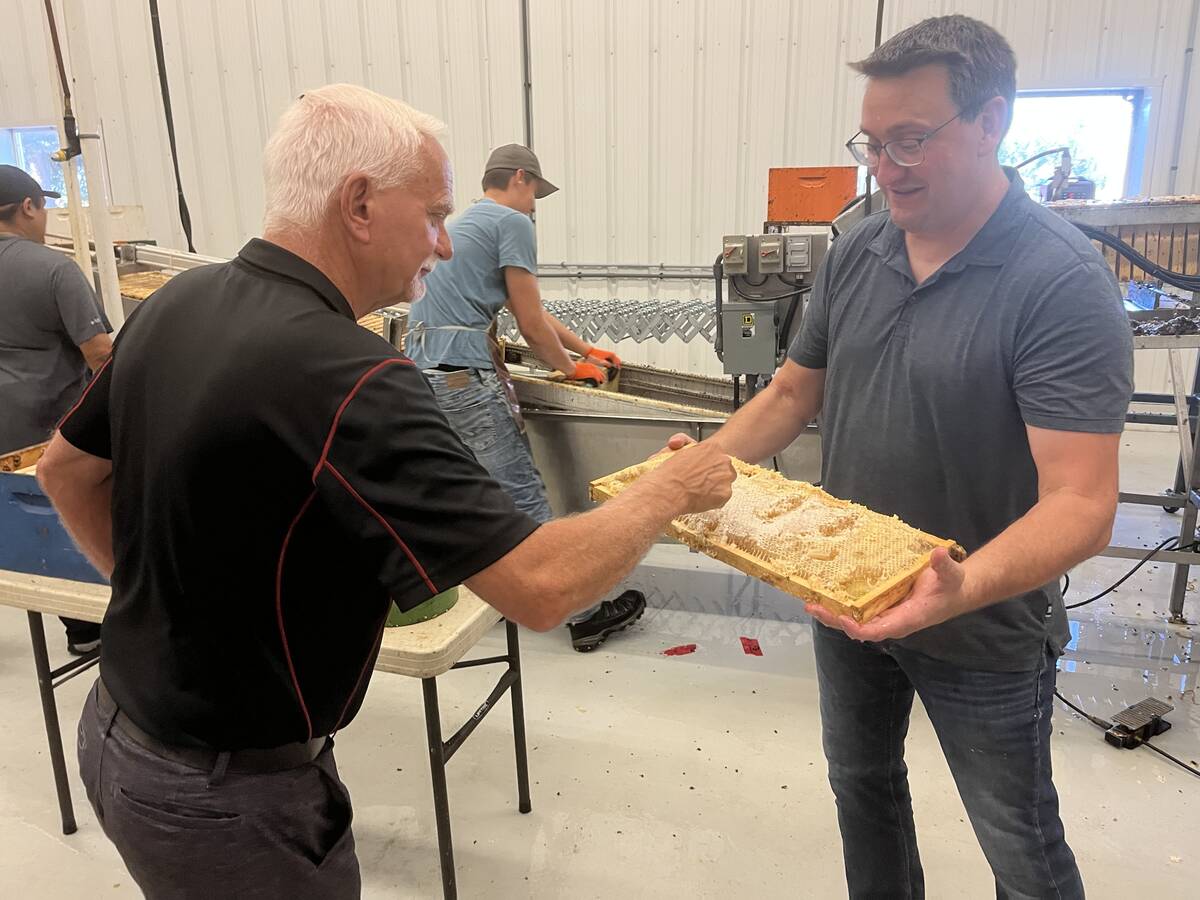YOUNG, Sask. Ñ Rural women who explored health concerns at a March 15 workshop in Young are ready to roll up their sleeves and get to work.
They came up with detailed plans that commit them to write letters and prod politicians and health districts for information and changes that would improve how services are delivered to rural residents.
“I think it’s really exciting to have a start on the issues,” said Liz Gordon, a farmer from Webb, Sask.
“I’m committed to one action.”
Added Wendy Paquin, who farms at Balcarres, Sask.: “It was a good day, a lot of energy and good ideas. I think it is hopeful when people do action in their own communities.”
Read Also

Alberta honey business ‘thrives’ despite bumpy beginnings
Thrive Honey showcases its honey production in market where Alberta produces 40 per cent of all honey produced in the country
Carolyn McDonald, a farmer from Richard, Sask., said she is always optimistic when rural women take action because there’s no alternative other than doing nothing.
Many women talked about problems faced by senior rural residents who want to live independently in their own town or farm home rather than move to the city. There are not enough neighbours to assist them and home care availability is patchy.
Gayle McMartin of Watrous, Sask., said she knows of a senior man who looks after six widowed women by getting their groceries and mail, shovelling their walks and generally looking out for them.
“So we have old people looking after old people.”
Octogenarian Mae O’Hagan of Allan, Sask., suggested a million women’s foundation. She said if a million women in Canada donated $100 each, it would create a foundation to do projects that women are interested in.
O’Hagan said women are suffering from “post oppression syndrome” and need to raise their own money so they don’t have to beg for money to fund projects.
“As a pensioner I would do without something to put money in this.”
Three women at the meeting are following up by checking into the rules for establishing a charitable group and researching projects supported by the existing Toronto-based Canadian Women’s Foundation.
Joanne Havelock of the Prairie Women’s Health Centre said the group hopes to organize several more health workshops in Saskatchewan, including two this spring. Rural women who want to attend should contact her at 306-585-5727.
Course of action
The women came up with several ideas to act on in the next six months:
- One group is looking at making home economics a compulsory part of the school curriculum to teach students nutrition and life skills from Kindergarten to Grade 12. With health concerns about lack of exercise causing obesity, heart disease and diabetes, the next generation must learn how to be responsible for its health, they said.
Part of the answer could be to support collective kitchens where individuals come together to buy food in volume and then cook batches of meals that they take home and freeze for later consumption.
- Rural residents need a patient advocate to help them through the doctor-hospital-nursing home systems, said another group. It is checking into whether there are such advocates and urging that each health district have one dedicated to rural residents to explain the bureaucracy and how to get what patients need.
One idea is to develop assertiveness workshops for the fall that would show women how and what to ask their doctors in order to receive the answers they need.
- A group is working to develop a website with information and contacts for rural women with health questions.
- Another is checking the status of the community advisory networks that are part of the province’s health districts. Two women who were at the meeting are on the same board but it has not held a meeting in a year. They say these advisory groups could act to funnel concerns from rural areas if they are heeded.
The women expressed a feisty resolve during their work, as evidenced by Ellen Stachiw’s response to Havelock’s question of what they would say to the federal agriculture minister if they were in an elevator with him.
The Foam Lake, Sask., woman said she would “press the stop button.”
















